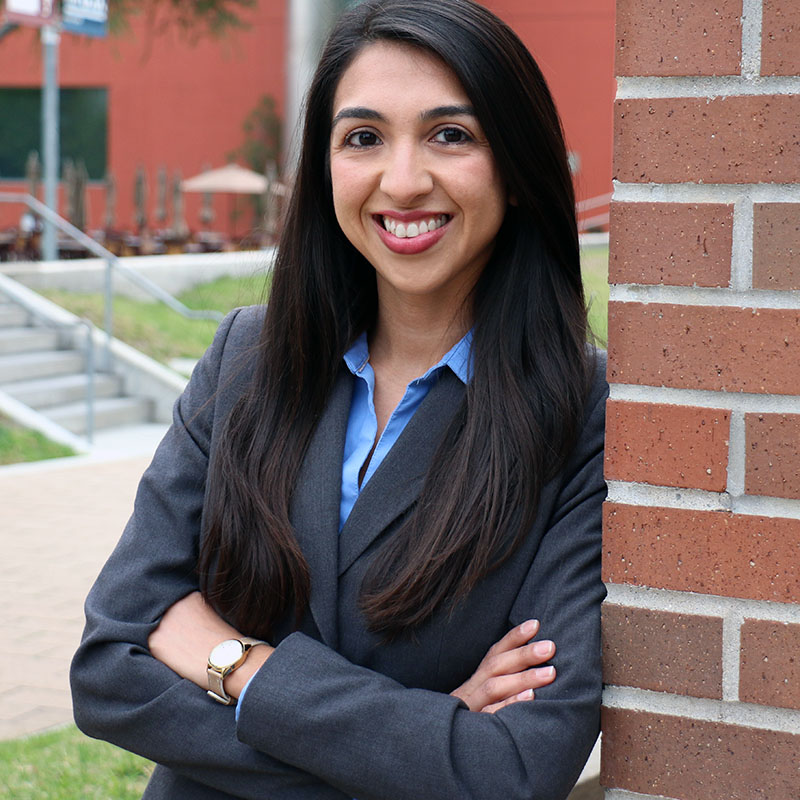Youth Advocate Comes Full Circle with Clinical Work
Los Angeles native Domonique Alcaraz ’18 was drawn to Loyola Law School, Los Angeles because of its close connection to the city it services. She was familiar with the Loyola Immigrant Justice Clinic, which provides immigration-relief services in East Los Angeles, and felt Loyola would give her the best the opportunity to represent individuals like her while making a difference in her hometown.
As a student, Alcaraz joined Loyola’s Juvenile Justice Clinic (JJC), where she represented children in criminal defense proceedings under the supervision of staff attorneys. One of the 20-plus live-client clinics that comprise the Loyola Social Justice Law Clinic, the JJC is one of three clinics operated by Loyola’s Center for Juvenile Law & Policy charged with client advocacy.
Q: Why did you decide to pursue law school, and how did Loyola's clinical offerings impact that decision?
A: The clinical offerings at Loyola made a huge impact on my choice to attend. As a Mexican-American woman who grew up in a low-income neighborhood, I pursued law school because I wanted to represent some of the most vulnerable people in our society. Those are the people I grew up with. And I knew that at Loyola, I could have my pick of clinical experiences ranging from immigration to criminal justice that would help me do just that.
Q: How did your participation in your clinic make a difference in your Loyola education?
A: Having the opportunity to become a certified law student provided me invaluable experience that some new attorneys only obtain once they’re practicing. For all intents and purposes, I was the lawyer on my clients’ cases. I was able to make appearances in court and negotiate with the District Attorney’s Office. The JJC taught me skills that helped me better serve both the clients I represented as a student and the clients I will represent as a lawyer. Participating in a clinic made me ready to hit the ground running after graduation.
Q: What is success with a client?
One of the greatest things is when you can find a way to let your juvenile client understand the greater implications of what’s happening when they’re charged with a crime and have to go to delinquency court. It’s the moment they can realize, “This can really change my life. If I don’t do something about it now, I don’t know where I’ll end up.” When my client finally realized, “I need to do better for me” and took the incentive to get involved in programs, that was real success.
Q: Finish this sentence: "If my time in the Loyola Social Justice Law Clinic has taught me anything, it is _________"
If my time in the Loyola Social Justice Law Clinic has taught me anything, it is that the law needs committed and diverse lawyers to be the change that we want to see.
The work we do at Loyola matters. Find out more or apply now.
